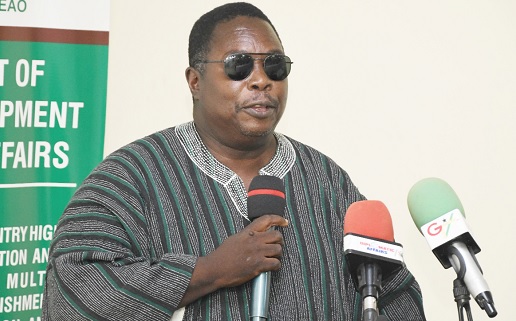
ECOWAS group to promote human rights laws
PARTICIPANTS in a three-day workshop on human security and social protection in ECOWAS countries have resolved to work together to have a binding law that ensures compliance with human rights laws.
They expressed commitment to ensure that there was an International Humanitarian Law (IHL) and International Human Rights Law (IHRL) mainstreamed in all educational curriculum from primary to tertiary institutions.
The participants also resolved to put in efforts to ensure an improvement in funds for institutions to identify human security issues that may arise on gender-based violence, trafficking in person and child protection.
The stakeholders also called for effective use of traditional authorities and strategic communication in the fulfilment of their duties.
These were contained in a communique read at the closing ceremony of the ECOWAS capacity building workshop on protection and human security integrated coordination mechanism (ECO-PHSICM) in Accra last Thursday.
The stakeholders had been deliberating on issues of human security and how at the national policy-making level they could ensure the protection of the people facing insecurity in the country.
Promote sustainable development
In a speech read on her behalf, the Minister of Foreign Affairs and Regional Integration, Shirley Ayorkor Botchwey, expressed confidence that the knowledge gained and the experiences shared would go a long way to strengthen their collective efforts towards protecting human security and promoting sustainable development.
She indicated that although there were outstanding issues that required more systematic research, the stakeholders had understood, at the minimum, the roles and functions of the National Centre for Coordination of Early Warning and Response Mechanism (NCCRM), the Office of the Resident Representative and the ECOWAS National Office in Ghana towards integrated human development.
In view of that, she urged the stakeholders to leverage the needed research and its outcomes to achieve better coordination and efficiency in the human security response landscape of the country.
She expressed the hope that the implementation of the recommendations and the establishment of the Office of the ECO-PHSICM in Ghana would go a long way to address Ghana’s human security and protection challenges.
The Executive Director of the Ghana Federation of the Disabled, Dr Peter Obeng Asamoa, appealed to ECOWAS to take a second look at the African Disability Protocol, a framework aimed at promoting, protecting and ensuring equal rights of Persons With Disability (PWDs).
He impressed upon the participants and ECOWAS as a whole to promote the African Disability Protocol to get it ratified in at least 15 countries, a requirement for it to become operational.
“So far, only six countries have ratified it, out of which only one, Mali, is a West African country,” he said.
“The protocol is something that will enhance the issue of protection and human security not just for persons with disability but for all of us,” Dr Asamoa noted.
He said for instance, when issues of inclusive education was mentioned, the focus was on giving every child the right to learn and go to school and not just about the education for PWDs.
He, however, expressed gratitude for representing PWDs at the workshop, saying it was his hope that the results, road map and deliberations made would have a positive impact on the lives of PWDs and their families.
